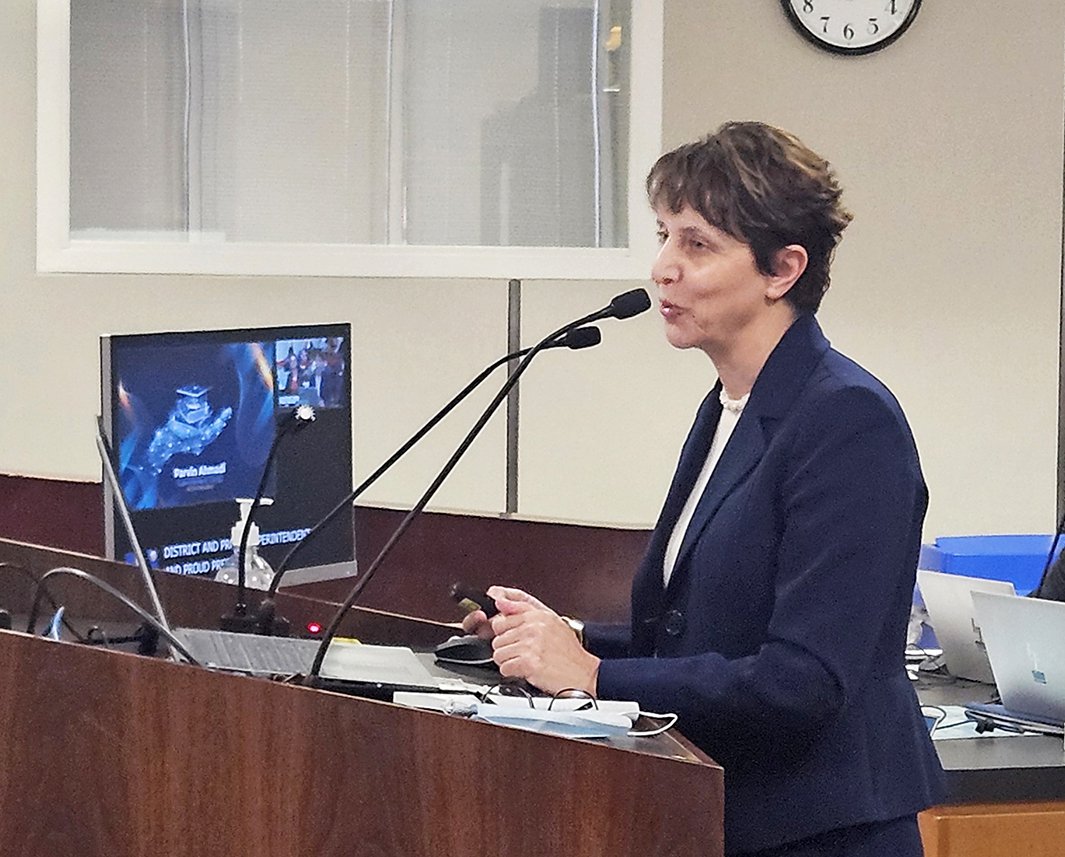
ACSA President Parvin Ahmadi presents to the State Board of Education on artificial intelligence in education and the need for an equity mindset when making policy decisions about this new technology.
ACSA leader speaks on AI
January 29, 2024
ACSA President Parvin Ahmadi presented the educator’s perspective on artificial intelligence guidance and support for districts at the California State Board of Education monthly meeting on Jan. 18.
The Board of Education invited Ahmadi, superintendent of Castro Valley Unified School District, to give her input on the need for staff training as the California Department of Education develops its recommendations on the use of AI in the classroom as an instructional tool. She pointed out the beneficial use cases of generative AI, such as ChatGPT, and risks, including safety and the social impacts for underrepresented groups in technology.
“We must emphasize human connections and educate for equity,” she said.
Ahmadi discussed the impact of the COVID-19 pandemic on virtual learning and new technology and said that although her district improved access to devices and internet for students during that time, outcome gaps still increased. Though AI can help, school sites need assistance from the state, she said.
“We must emphasize human connections and educate for equity.”
— Parvin Ahmadi, ACSA President
“Post-pandemic, we still have needs for technology,” Ahmadi said. “Infrastructure is a huge piece — we need dependable and strong access at school and at home.”
On the professional development side, Ahmadi told of her experience observing classrooms and the importance of educating teachers on technology standards.
“I think any tech we use, whether it be AI or anything else, we have to ask: ‘Is it balanced? Is it engaging? Is it enhancing what we do, and does it provide opportunities for creativity and collaboration?’” she said.
She also emphasized ACSA’s active role in the work, noting ACSA is collaborating with F3 Law on developing guiding questions and considerations for school board and district leadership on the responsible integration of generative AI in instruction and operations.
Ahmadi ended her comments — which received praise from board members — by asking for a mindset change when it comes to students and a continued focus on equity.
“Think of our students as creators and conscientious developers and provide opportunities for them in every way we can,” she said. “More than anything I want to leave with you today is that equity is a centerpiece of policy decisions. Every time we make a decision, if we don’t have that equity mindset as the centerpiece, we can hinder student progress.”
ADVERTISEMENT



